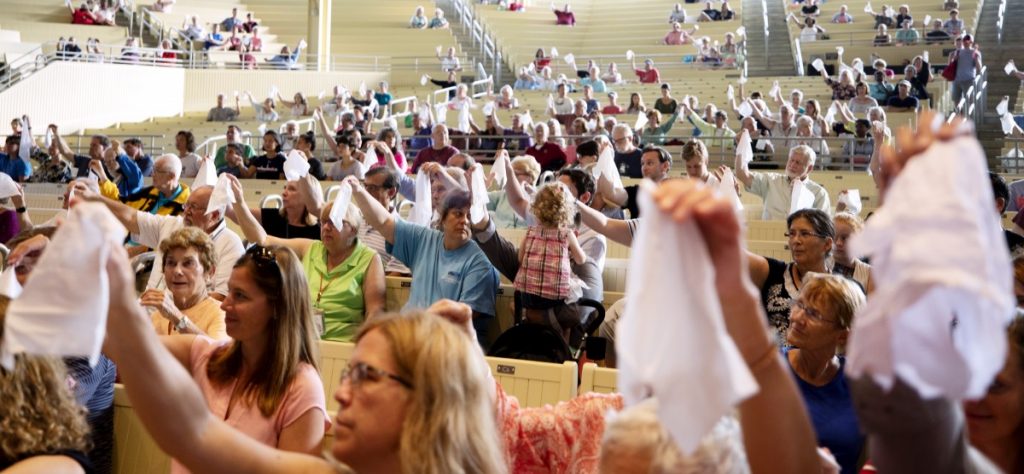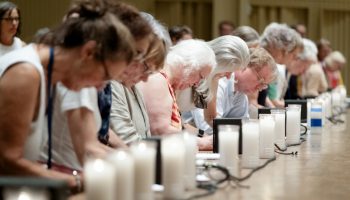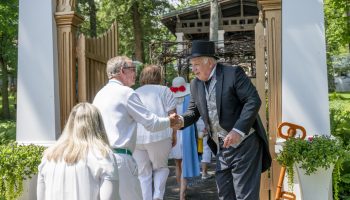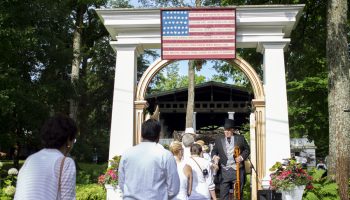
To Jon Schmitz, historian and archivist for Chautauqua Institution, a tradition cannot be spontaneous, it cannot be mandated, and it cannot be declared on a whim.
“I don’t feel comfortable with the term ‘new traditions.’ I think that is trying to assume legitimacy that (a practice) hasn’t earned yet,” Schmitz said. “The key (to a tradition) is to be accepted by those practicing (it) as what should be done.”
Schmitz will further explore what constitutes a tradition at 3:30 p.m. EDT Friday, July 10, on CHQ Assembly in a lecture titled “Traditions of Chautauqua.” As part of the Heritage Lecture Series, Schmitz’s presentation will explore the archive’s most-inquired-about Institution traditions.
Notable traditions include Chautauqua Salutes, Recognition Day, and the Opening Three Taps of the Gavel. Schmitz said that this lecture topic was chosen to, in some way, continue acknowledging these traditions despite remote programming preventing them from being practiced in person.
“I thought it would be a good idea to review some of the traditions to see what they are, how they came about, when did they start, (and) was there a reason for them,” Schmitz said.
Although the community cannot physically participate in some of these traditions, the Institution is working to keep them intact. Schmitz said he is aware of efforts to organize a virtual Recognition Day, an all-day annual celebration of Chautauqua Literary and Scientific Circle graduates. The Institution has worked to virtually maintain traditions by ushering in the 2020 season by premiering Three Taps on CHQ Assembly.
(Our traditions) accumulate meaning over time for Chautauqua, and also for individual Chautauquans,” Schmitz said. “It’s a way of remembering the past. It’s also the way of bringing the past into the present, so that we can put things into the perspective of past, present, and future.”
In his opening Three Taps of the Gavel, Institution President Michael E. Hill formally launched the virtual season from the Amphitheater, where a traditional, in-person season would begin. In his Three Taps, Hill spoke about Chautauquan traditions as reflections of programming, values, and the Institution’s place in the world.
“Tradition is important at Chautauqua. It’s the reason we’re here on this stage today. The same space which almost every assembly has been ushered in, and where we hold our principle worship service,” Hill said. “Our traditions are replete with important symbols that tell stories about our history and our present role in the world.”
For the Institution, Schmitz said that traditions allow the history to be passed down and kept alive through the years. Even as the Institution and its audience evolves, the history is still kept alive.
“(Our traditions) accumulate meaning over time for Chautauqua, and also for individual Chautauquans,” Schmitz said. “It’s a way of remembering the past. It’s also the way of bringing the past into the present, so that we can put things into the perspective of past, present, and future.”
The Oliver Archives Heritage Lecture Series is made possible with a gift from Jeff Lutz and Cathy Nowosielski.




